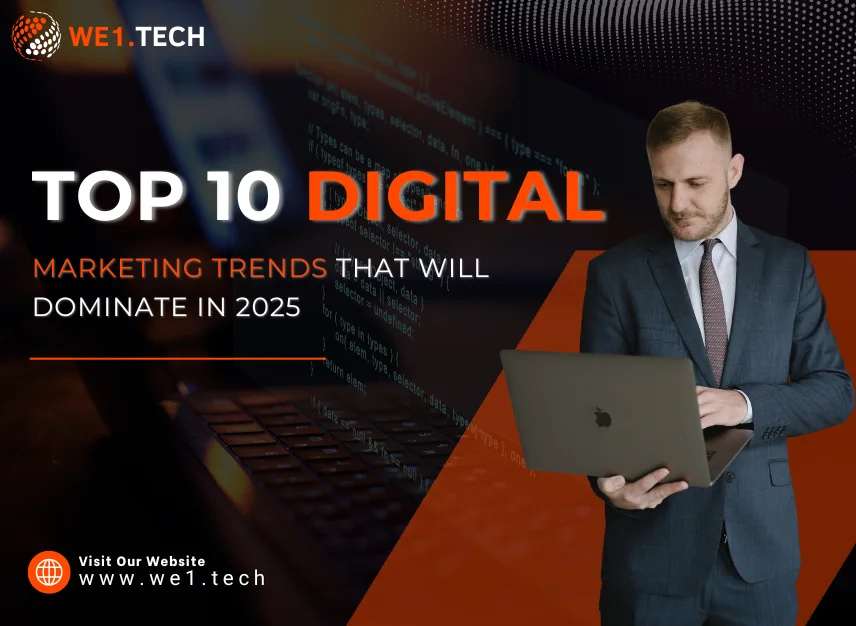
The digital landscape is evolving faster than ever. New technologies, shifting user behavior, and growing competition are forcing marketers to stay one step ahead.
In today’s competitive and digitalized world, gaining the audience’s attention has become a real challenge.
In 2025 and beyond, digital marketing will be shaped by powerful trends like AI-driven personalization, conversational commerce, and immersive content. Businesses that adapt early will lead, while others will risk falling behind in a crowded marketplace.
In this blog post, we will explore the top digital marketing trends set to dominate in 2025, giving you a winning edge.